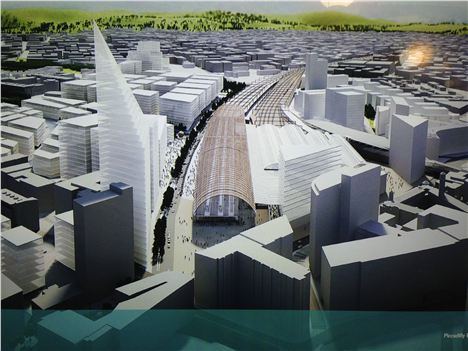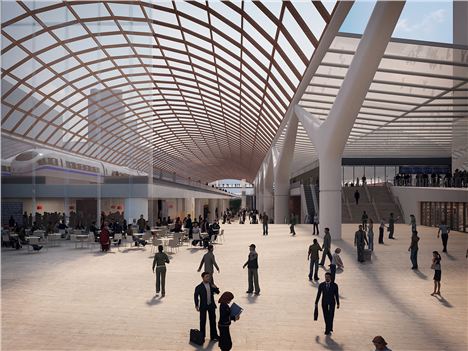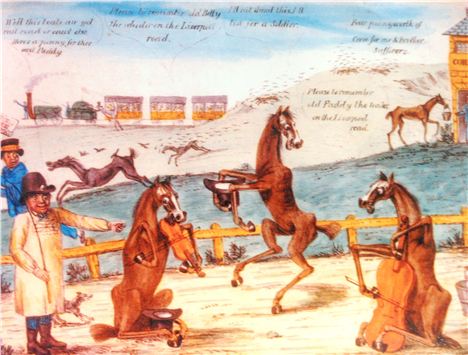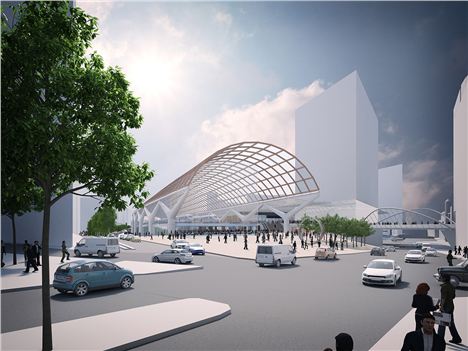HOW many votes do you think a General Election candidate would garner in Manchester with the following offer to the electorate: ‘Isolate Manchester’, ‘shut down the west coast main railway line’ and ‘close the M6’?
This would add insult to injury as London has already had more than 90% of all the money invested in transport in this country in recent years.
I would hazard a guess that such a candidate would have the humiliation of losing their deposit.
One does not have to be a Nobel Laureate in economics to understand that Manchester’s economy is dependent on good transport links to the rest of the country, and indeed the world.
However it is precisely this economic illiteracy that lies at the heart of the opposition to the new North South railway (or High Speed 2). We are told that if HS2 is built all the benefits would go to London. If that were the case we really would benefit from closing the main transport arteries into Manchester but that’s obvious nonsense.
This absurd argument and others are the main reasons that there has not been a new railway line built north of London for 120 years. It is extraordinary that Manchester, the home of the first passenger railway service, is so far behind the rest of the world when it comes to high speed trains. After all it is 50 years ago since Japan’s bullet trains pioneered high speed rail travel.
HS2 will deliver a transformed Piccadilly gateway for the city
In eight years time the current rail system will be unable to cope with the number of passengers who wish to travel between London and the North West. The actual number of passengers travelling on the West Coast Main Line are already well in excess of forecast levels. If the new North South Railway is not built we will suffer as surely as if we had restricted or closed the most important transport routes into Manchester.
The reason for building High Speed 2 then is to increase capacity. A high speed line costs only 10% more than a traditional line and provides much greater capacity. Although the Department of Transport assess the economic benefits of new schemes by the time saved, extra capacity is the overwhelming reason for investing in HS2. This makes irrelevant the arguments in the press about whether or not business people use their laptops on trains.
Incidentally a recent House of Commons Transport Select Committee inquiry found that cities like Lille, Frankfurt and Cologne’s regeneration and improved economic performance had been stimulated and made possible by high speed rail lines. The Department of Transport doesn’t even attempt to assess these benefits which would undoubtedly be replicated in Manchester.
Opposition to HS2 comes from vested interest, both justified and unjustified.
One can completely understand people whose homes or livelihoods are going to be disrupted by the construction of HS2 campaigning against it. There should be generous and immediate compensation for those affected and that should be that.
The opposition form the Conservative Mayor of London Boris Johnson is a different kettle of fish. He is against the scheme because he wants the money for his own pet London transport schemes, Crossrail 2 and a new London airport. The bill for these alone would run to £100billion. This would add insult to injury as London has already had more than 90% of all the money invested in transport in this country in recent years. London’s Mayor has the cheek to say that ‘the investment case for HS2 is poor’ when actually the case is stronger than that for Crossrail, the Jubilee Line extension and the building of the M25 and M1 in the London area.
The High Speed Station in computer-graphic-land
One also suspects the motives of some of the defectors from the HS2 campaign. It appears that Peter Mandleson’s mind has been changed, not by the arguments but because his close friend Nat Rothschild and family have been strong and strident opponents fearing the impact on the countryside in Buckinghamshire and Oxford.
It was a mistake by Labour’s Shadow Chancellor, Ed Balls, in his speech in Brighton at Labours annual conference to cast doubt on HS2. Of course everybody wants the best value for money but if the scheme doesn’t go ahead the money won’t go to alternative projects in the North of England it will disappear forever into London and the South East.
As Will Hutton has explained elsewhere the Treasury is intent on sabotaging this scheme by wildly exaggerating its potential costs. Mandarins hate the idea of money escaping from London.
The current cost of the full HS2 scheme is less than four times the cost of the recent partial upgrade of the West Coast Main Line. A recent KPMG report revealed that because of the extra economic growth induced by HS2 it will pay for itself in less than 30 years.
My main criticisms of the High Speed 2 project are that while the train is fast the construction schedule is not and because it is being built from South to North the immediate benefits will go to Birmingham and London. It would make much more sense to start building from Manchester to London as well as London to Manchester bringing the immediate benefits to the North as well as an earlier completion date.
When the first railway lines were built nearly 200 years ago bargees and stagecoach drivers saw the threat to their businesses and organised themselves as formidable opponents. They undoubtedly defended their vested interests vigorously and exaggerated their case to the point of falsehood.
Cartoon from stagecoach companies at the opening of the Liverpool and Manchester Railway in sympathy for horses having to seek alternative jobs
What was true then is true now.
Those vested interests and bogus arguments were swept aside allowing a transport infrastructure to be built that has formed the basis of our economy ever since.
We must do the same again.
Graham Stringer is the Labour MP for Blackley and Broughton. He is a former Council Leader of Manchester City Council. Confidential welcomes columns from all sitting MPs in the area regardless of political party but as long as they can write interesting articles.














